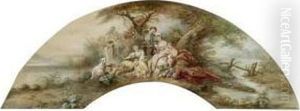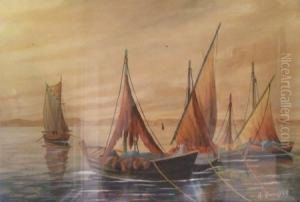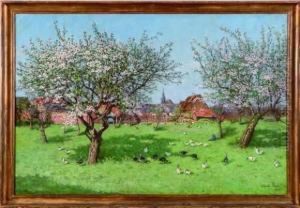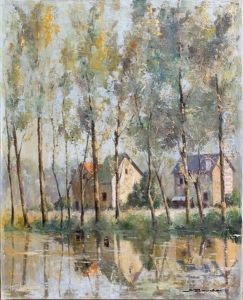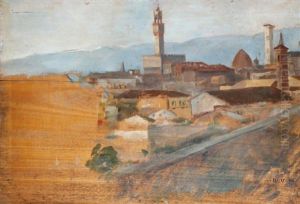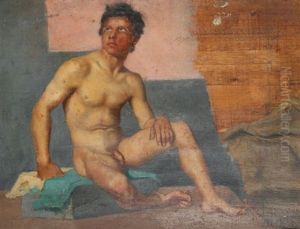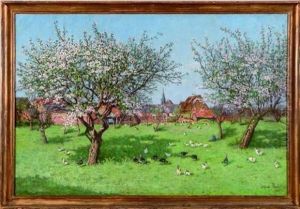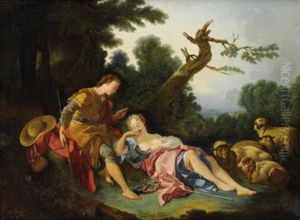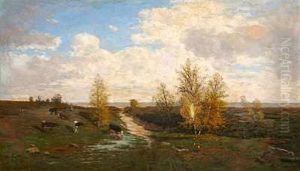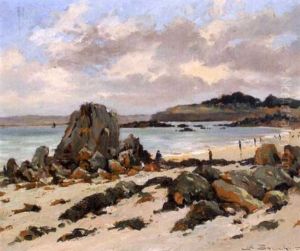Alfred Boucher Paintings
Alfred Boucher was a French sculptor, born on September 23, 1850, in Bouy-sur-Orvin, a small village near Nogent-sur-Seine, France. He was known for his bronze and marble sculptures, which often depicted figures from the world of labor, as well as allegorical subjects and portraits. Boucher came from a humble background; his father was a farm worker and his mother was a shepherdess. Despite their limited means, Boucher's artistic talents were apparent from a young age, and he received encouragement to develop his skills.
In his early years, Boucher worked in various trades, including as a farmhand and in a gypsum quarry. His formal artistic training began when he moved to Paris and became a pupil of the renowned sculptor Paul Dubois. He also studied at the École des Beaux-Arts, one of the most prestigious art schools in France. Boucher's work quickly gained recognition, and he won several awards, including the prestigious Prix du Salon for his sculpture 'La Piété Filiale' in 1881.
Boucher was not only a successful artist but also a mentor to other sculptors. He played a significant role in the early career of the famed sculptor Camille Claudel, providing her with guidance and support. Additionally, he was involved in the creation of the artists' colony known as La Ruche ('The Beehive') in Paris, which provided young artists with affordable studio space. This endeavor reflected his lifelong commitment to helping emerging talents in the art world.
Over his career, he exhibited at the Salon in Paris and received numerous commissions for public monuments, including statues of prominent figures such as Doctor Reclus and Henri Martin. His works are characterized by a naturalistic style, with a particular focus on the human figure and expressive movement.
Boucher remained active in the artistic community throughout his life. He was appointed a Chevalier of the Légion d'Honneur in 1889, and later promoted to Officer. His later years were spent in Aix-les-Bains, where he continued to create and exhibit his artwork. Alfred Boucher died on August 10, 1934, leaving behind a legacy of influential sculptures and a reputation for his generosity towards young artists.
